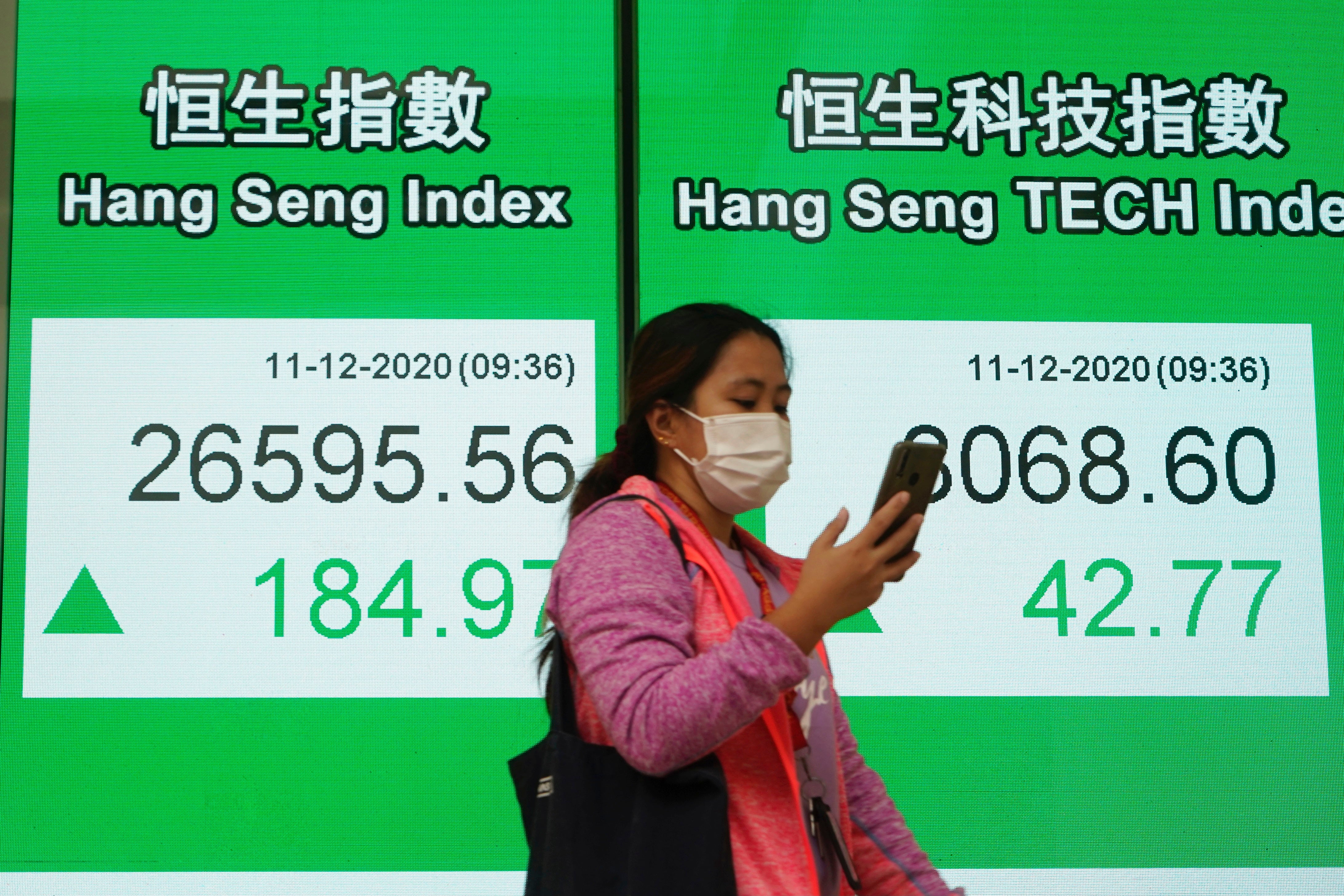Asian stocks mixed after Wall St falls on virus pressure
Asian stock markets are mixed after Wall Street sank following evidence the coronavirus pandemic's damage to the U.S. economy is worsening

Your support helps us to tell the story
From reproductive rights to climate change to Big Tech, The Independent is on the ground when the story is developing. Whether it's investigating the financials of Elon Musk's pro-Trump PAC or producing our latest documentary, 'The A Word', which shines a light on the American women fighting for reproductive rights, we know how important it is to parse out the facts from the messaging.
At such a critical moment in US history, we need reporters on the ground. Your donation allows us to keep sending journalists to speak to both sides of the story.
The Independent is trusted by Americans across the entire political spectrum. And unlike many other quality news outlets, we choose not to lock Americans out of our reporting and analysis with paywalls. We believe quality journalism should be available to everyone, paid for by those who can afford it.
Your support makes all the difference.Asian stock markets were mixed Friday after Wall Street sank following signs damage to the U.S. economy from the coronavirus is worsening while Congress is deadlocked over possible new aid.
Shanghai and Tokyo retreated while Hong Kong and Seoul gained.
Investors have been encouraged by progress in developing vaccines. But optimism has been dented by rising infection numbers in the United States and some other markets, which prompted renewed curbs on business.
Overnight, Wall Street's benchmark S&P 500 index slipped 0.1% after the government reported more people than expected applied for unemployment last week. The index hit an all-time high on Tuesday.
“While the stimulus deadlock is proving to be the ultimate rally capper, it was the gnarliest of Main Street concerns that hurt sentiment,” said Stephen Innes of Axi in a report.
The Shanghai Composite Index lost 1% to 3,338.69 and the Nikkei 225 in Tokyo shed 0.4% to 26,654.05. The Hang Seng in Hong Kong advanced 0.3% to 26,485.23.
The Kospi in Seoul advanced 0.9% to 2,770 while Sydney's S&P-ASX 200 was off 0.5% at 6,651.50.
India's Sensex opened up 0.7% at 46,299.57. New Zealand and Singapore advanced while Jakarta declined.
U.S. stocks slipped after the government reported Thursday that 835,000 people applied for unemployment last month, the highest level since September. That meant the total number of people receiving jobless benefits rose for the first time in three months, to 5.8 million from 5.5 million. Weekly jobless claims pre-pandemic usually were about 225,000.
On Thursday, a proposed $908 billion aid deal all but collapsed after Senate Majority Leader Mitch McConnell said Republican senators won’t support giving $160 billion to state and local governments. Republicans are pressing for a measure that would shield companies from potential coronavirus-related lawsuits.
The package would extend unemployment benefits that are due to expire Dec. 26. Without it, more than 9 million people would lose benefits, which would undercut consumer spending, the main engine of the U.S. economy.
The S&P 500 slipped to 3,668.10, led by declines for industrial and communication stocks. The Dow Jones Industrial Average dropped 0.2%, to 29,999.26. The Nasdaq composite rose 0.5% to 12,405.81.
Also Thursday, the European Central Bank announced another 500 billion euros ($600 billion) in stimulus.
In energy markets, benchmark U.S. crude rose 11 cents to $46.89 per barrel in electronic trading on the New York Mercantile Exchange. The contract rose $1.26 to $46.78 per barrel on Thursday. Brent crude, used to price international oils, added 9 cents to $50.34 per barrel in London. It advanced $1.39 the previous session to $50.25 per barrel.
The dollar fell to 104.02 Japanese yen from 104.23 yen. The euro rose to $1.2156 from $1.2134.
Subscribe to Independent Premium to bookmark this article
Want to bookmark your favourite articles and stories to read or reference later? Start your Independent Premium subscription today.